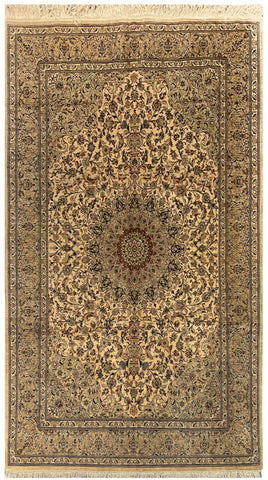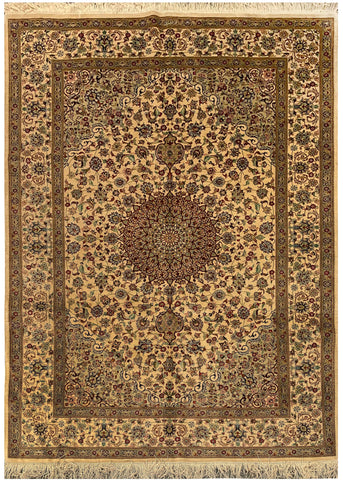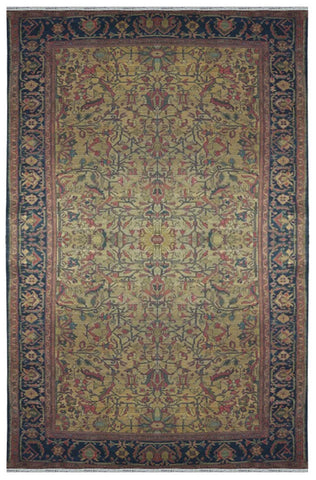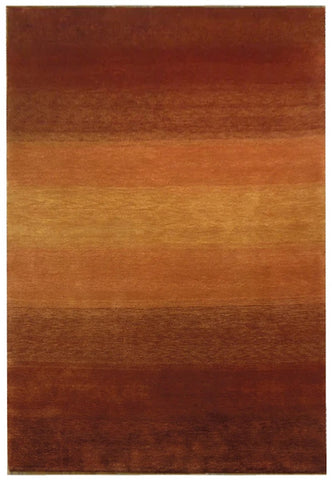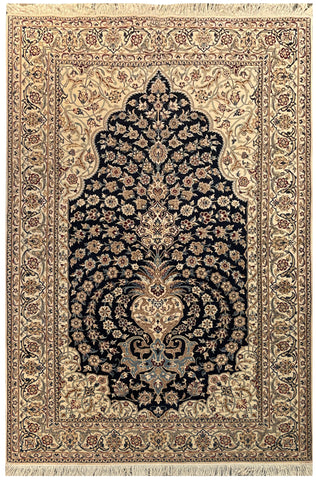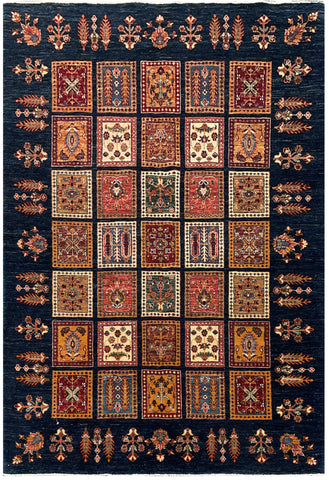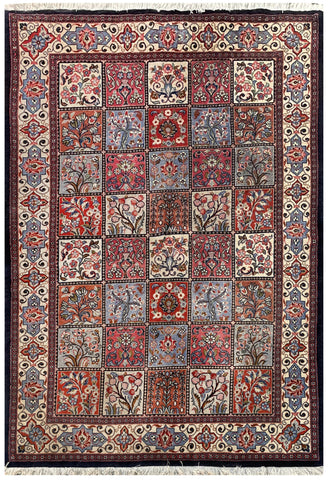19418-Isfahan Hand-Knotted/Handmade Persian Rug/Carpet Traditional Authentic/ Size: 6'10''x 4'4'
Previous Product Next ProductBabak's Oriental Carpets
1 in stock
Medium Carpet
Location: Isfahan (Signed "Iran Isfahan Habib")
Size: 6'10''x 4'4'
Country: Iran
Pile: Wool+Silk
Base: Silk
Details:
Isfahans are hand knotted on a vertical loom using a Persian knot and very high densities ranging from 160 to 400 knots per square inch. Silk Isfahans have densities approaching 600 knots per square inch. The warp is often...
Location: Isfahan (Signed "Iran Isfahan Habib")
Size: 6'10''x 4'4'
Country: Iran
Pile: Wool+Silk
Base: Silk
Details:
Isfahans are hand knotted on a vertical loom using a Persian knot and very high densities ranging from 160 to 400 knots per square inch. Silk Isfahans have densities approaching 600 knots per square inch. The warp is often made of cotton and the pile is always closely cropped, usually wool and silk. More often than not, silk is utilized in the decorations to heighten the visual effect of the carpets, bestowing on them a certain gleam.
Description:
Isfahans are considered the crème de la crème of Persian carpets. Created in the master workshops of the city of Isfahan, one of the most prestigious cities of the Middle East, they were probably the first Persian carpets to be known and appreciated in Europe. In fact, during the reign of Shah Abbas (1587-1629) many carpets woven by the craftsmen of Isfahan were given as gifts to dignitaries and rulers from the West. These examples were in silk and sometimes included the use of silver and gold thread. The appearance of Isfahans produced in the last 50 years under the Pahlavi influence is radically different from those produced in the later 19th and early 20th centuries. These older items tend to employ a richer palette and more varied designs. In contemporary items the palette is more pastel and technical perfection is generally of greater importance than artistic flair. Contemporary Isfahans are, however, extremely attractive, and the subduing of the palette, particularly the elimination of strong reds, makes them more compatible with Western decorative schemes.
Isfahans all have a floral design, usually with a central medallion on a field decorated by a motif of interlaced flowering branches or what is commonly referred to as the Shah Abbas motif. Some specimens also have four corners decorated with the same motifs (Shah Abbas) and colors as those represented in the central medallion. Carpets with scenes of flowers and animals are also quite common. Another decoration that is typical of this area is the one known as ‘vase of flowers.’ The field of this carpet has at the bottom a vase from which flowering branches emerge and cover the whole of the field. In these examples, the field is often in the form of a niche, and therefore there are two quarters at the top of the niche at the opposite end from the vase.
The border of Isfahans is usually made up of a large central band framed by two narrow guards that, in turn, are enclosed between two even narrower bands. The latter are almost always decorated with a Greek-key motif, while the two guards have rosette motif joined by a garland. The main border band often has a herati motif in a very elaborate form (herati designs are diamond-shaped geometric forms with floral heads both inside and surrounding). In carpets with a decoration of plants and animals the ground motifs are repeated in the border. A broad color range is used in Isfahan carpets and the craftsmen were masters at creating a harmonious combination of ground and design by alternating light and dark colors.
Price Range and Value:
HIGH
Related Products
CAD $35,999.00 CAD $8,999.00
CAD $35,999.00 CAD $8,999.00
CAD $16,999.00 CAD $4,999.00
CAD $1,999.00 CAD $999.00
CAD $25,999.00 CAD $6,599.00
CAD $3,999.00 CAD $859.00
CAD $2,499.00 CAD $759.00
CAD $4,999.00 CAD $759.00














